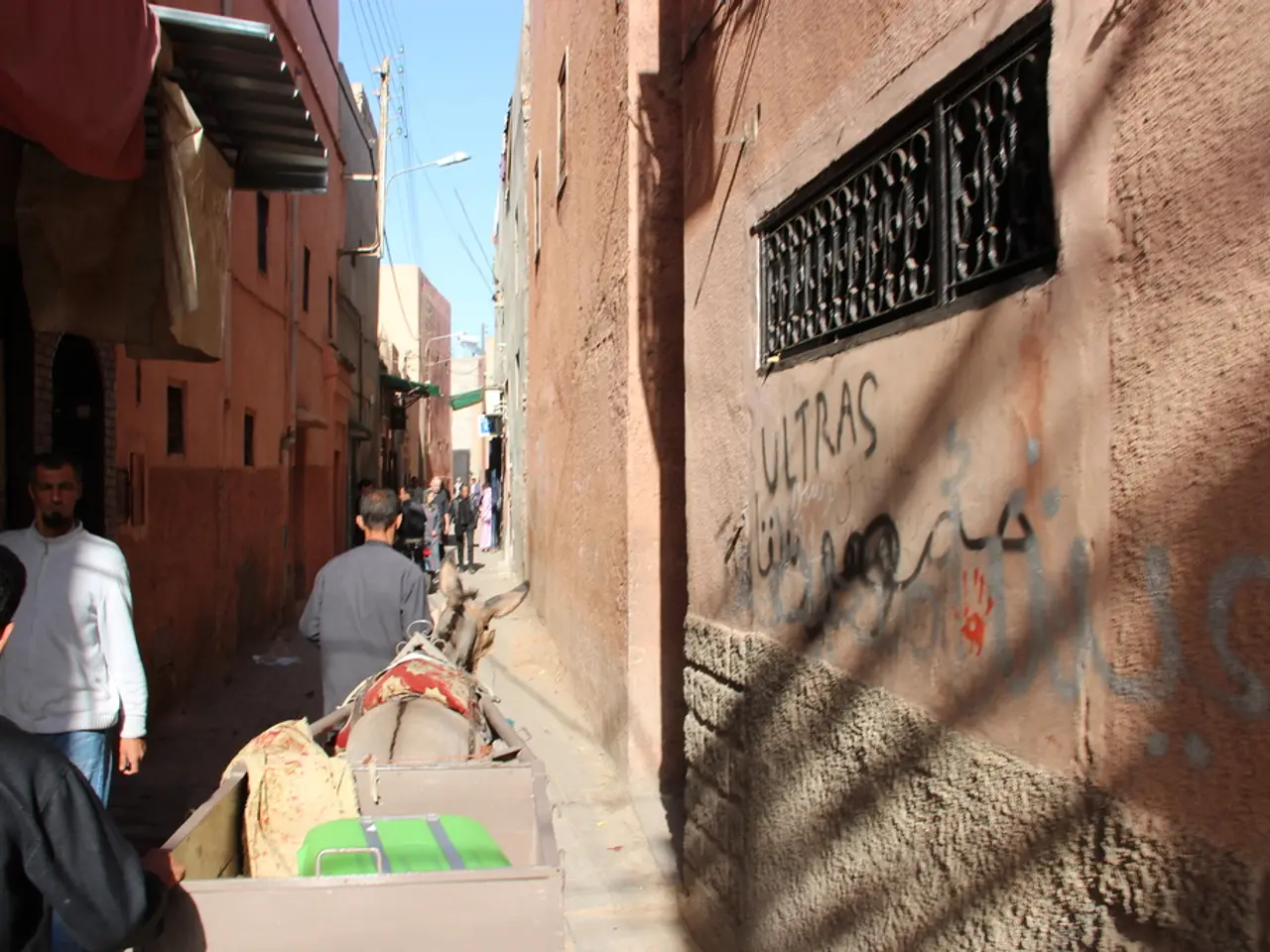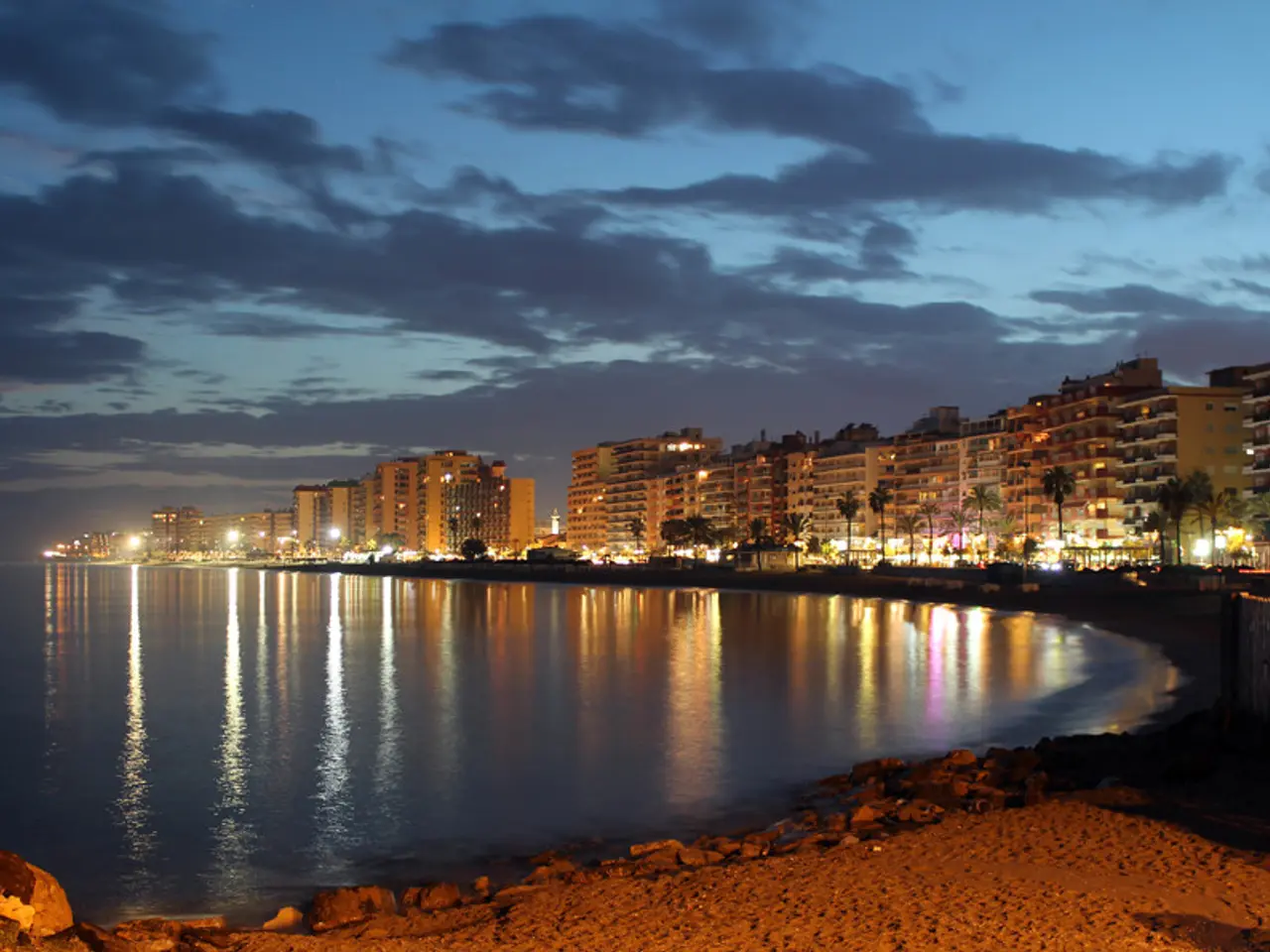Israel ponders over a significant military move, potentially reoccupying Gaza, amplifying the ongoing conflict.
Israel's consideration of a full reoccupation of the Gaza Strip has raised concerns about prolonged military and humanitarian challenges, increased casualties, international isolation, and a likely extended insurgency.
The military and casualty risks are significant. A full reoccupation would require large numbers of troops to secure Gaza’s densely populated urban areas, exposing Israeli forces to intense urban warfare, ambushes, and improvised explosive devices (IEDs). This could lead to high Israeli Defense Forces (IDF) and Palestinian casualties. The operation also risks endangering the remaining Israeli hostages held by Hamas, as ongoing conflict could further destabilize conditions for their release.
If Israel were to reoccupy Gaza, it would face the challenge of governing and stabilizing the area, home to an extremely dense and traumatized population. The population could become a fertile ground for insurgent recruitment, leading to a prolonged, low-intensity conflict which Israel is politically and operationally unprepared to manage. This occupation risks Israel becoming entangled in a long-term insurgency with day-to-day civil and security responsibilities.
The full reoccupation would likely deepen Israel’s global isolation due to the severe humanitarian crisis in Gaza. It would provoke strong international condemnation, including from the U.S., Arab states, and Europe, undermining Israel’s diplomatic efforts. It could also draw Iran and its regional allies back into the conflict, escalating the situation into a broader regional conflagration.
The operation could exact a significant toll on Israeli national morale, military budgets, and public support. The Israeli public may become less supportive of a prolonged, costly occupation, especially with mounting casualties and unclear political gains.
The potential political outcomes are uncertain. While the reoccupation is partly intended to pressure Hamas into concessions or a negotiated settlement, past military pressure has failed to break Hamas’s hold on Gaza or secure hostage releases. The operation may therefore entrench conflict dynamics rather than resolve them.
If large numbers of Palestinians are not expelled, Israel would face an existential dilemma: Create a Palestinian state in the 1967 territories and preserve Israel as a Jewish and democratic state, or rule over millions of Palestinians indefinitely and hope they never rally behind the idea of equal rights in a binational state.
The reoccupation of Gaza would mark a significant escalation of the nearly 22-month war in the territory. The United Nations, the Palestinians, and others continue to view Gaza as occupied territory after the 2005 withdrawal of Israeli troops and settlers, as Israel maintains control of its airspace, coastline, most of its land border, and its population registry. Most of the Palestinian population in this territory is denied basic rights, including the vote.
If Israel were to reoccupy Gaza, it would no longer be able to use Hamas' rule in Gaza or factional divisions among Palestinians as reasons to avoid such a reckoning. The potential long-term repercussions for Israel, if Prime Minister Benjamin Netanyahu orders a full reoccupation of the Gaza Strip, are significant and far-reaching.
[1] Human Rights Watch. (2022). Israel/Palestine: Gaza: Israeli Occupation and Human Rights Violations. [2] Amnesty International. (2022). Israel/Palestine: Gaza: A Brutal, Brutal Occupation. [3] B'Tselem. (2022). Israel's Occupation of the West Bank: A Legal Perspective. [4] International Crisis Group. (2022). Israel/Palestine: The Future of Gaza. [5] United Nations Office for the Coordination of Humanitarian Affairs. (2022). Occupied Palestinian Territory: Humanitarian Response Plan 2022.
- The prospect of a full reoccupation of Gaza by Israel could lead to an escalation of general news, war-and-conflicts, and politics, as it may provoke strong international condemnation and draw Iran and its regional allies into the conflict, potentially leading to a broader regional conflagration.
- If Israel decides to reoccupy Gaza, they would face the challenge of governing and stabilizing the area, with the danger of creating a fertile ground for insurgent recruitment, leading to a prolonged, low-intensity conflict that could strain Israeli national morale, military budgets, and public support.
- The reoccupation of Gaza would likely deepen Israel's global isolation, as human rights organizations such as Human Rights Watch, Amnesty International, B'Tselem, International Crisis Group, and the United Nations Office for the Coordination of Humanitarian Affairs would scrutinize the situation, potentially leading to increased criticism and international sanctions.





